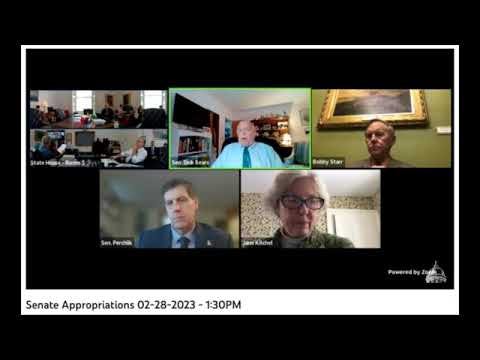Is this what Sen. Kitchel meant by a legislative “check back”?
Promise that “nothing would move forward without affirmative action by the future legislature,” is shown to be very, very false.
Back at the end of February, S.5, the Clean Heat Standard bill, was in danger of dying in the Senate Appropriations Committee. A majority four out of the seven members couldn’t support a bill that handed over responsibility to the unelected Public Utilities Commission for totally remaking our economy and energy policy with without knowing exactly what t…
Keep reading with a 7-day free trial
Subscribe to Behind the Lines: Rob Roper on Vermont Politics to keep reading this post and get 7 days of free access to the full post archives.



